- Home
- Thomas E. Sniegoski
Sleeper Code Page 3
Sleeper Code Read online
Page 3
She did not want to hear this. She wanted to hear that her father and mother had been talking, that they were working things out.
“And our lawyers have recommended that we shouldn’t—”
“I don’t want to hear about your damn lawyers,” Madison yelled into the phone, slamming her hand down on the island.
“Madison, please,” her father pleaded again. “How many times do we have to have this conversation?” She could hear the annoyance in his voice.
“I guess until I really understand what happened between you and Mom,” she said curtly.
An uncomfortable silence expanded between them, and for a moment she began to wonder if her father was even there anymore.
“There’s really not all that much to understand,” he finally said, his voice startling after the quiet. “We drifted apart. And by the time we noticed, we’d gone too far, become different people.”
Madison slid off the stool and began to pace around the kitchen, phone pressed tightly to her ear. “That’s not true. You were happy. I would have known if something was wrong.”
“I’m not going to say it was all bad, but you saw what we wanted you to see, honey,” her father tried to explain, his voice sad. “We became good at hiding it from you. We didn’t want you to know until we thought you’d be able to handle it.”
She had started to cry, tears running down her face. “Well, you know what?” she asked, wiping her running nose with the back of her hand. “I wasn’t ready, and I’m not sure if I would’ve ever been ready to learn that my parents were living a lie.” She grabbed a tissue from the box on the counter and wiped her tears. “It’s like some crazy bad dream that keeps tricking me into thinking that I’m awake, but I’m really not, and it just keeps going on and on.”
She heard her father breathing on the other end of the line. “I know this is tough for you, honey,” he said. “But it’s tough for us as well.”
Madison laughed. “Yeah, right, especially all that fighting your lawyers are doing over who gets the house and who gets the car, right?”
It was usually at this point that her father lost control, going off about how he wished his daughter would cut him some slack. But today was different.
“I really have to go,” he said, the tight control obvious in his tone.
“Yeah.” She sniffed. “I’ve got to get going too.”
“Madison, I—” her father started.
“Talk to you later,” she cut in, not allowing him to finish.
“All right,” her father responded. “Talk to you soon.”
Madison slammed the phone back into its cradle, certain that he was going to say that he loved her or something equally infuriating. She snatched up her coffee, taking a big gulp, grimacing as the cold, bitter liquid traveled down her throat.
She dumped what was left into the sink.
She thought about what her father had said. Digging through her memories—school plays, First Holy Communion, Christmases down the line—she searched the past for hidden problems, for evidence of lies. She couldn’t come up with any.
But that doesn’t mean they weren’t there.
It had been a morning filled with so much potential, and Tom was amazed by how quickly it had all turned into a steaming pile of crap.
He had awakened on the table in Dr. Powell’s exam room, both the doctor and his mom standing close by, waiting for the spell to run its course. He’d been asleep for over an hour.
Would have served them right if I was out for a week, he thought angrily, not really sure why he was so mad at them but guessing it had something to do with the fact that they had ended up being right. He wasn’t getting any better; in fact, he was the same as he’d always been. Tom’s hand drifted up to gently touch the nasty bump on his forehead. It hurt like hell, and he had the beginnings of a major headache.
“Are you okay?” his mother asked from the driving seat. He ignored her question, staring out the window but really seeing nothing.
“I knew you’d hurt yourself,” she said. “The way you were thrashing around. This is why I was so upset that you weren’t taking your—”
“Could we please not talk about this?” he begged her. “Please?”
His mother turned in at their driveway on Burrows Place
, a quiet cul-de-sac that they shared with one other home. Tom was surprised to see that they were home already. He had been so lost in his angry thoughts that he had barely registered the ride from the doctor’s office.
“Do you want me to make you some lunch?” Mom asked, glancing at her watch. “It’s nearly quarter to twelve.”
“I’m not hungry,” Tom grumbled, opening the car door and getting out. But he had forgotten his keys, so he had to wait at the front door for his mother to let him inside.
“See, you need me for something,” she said with a smirk, opening the door and holding it for him to enter. “How about I make us a couple of grilled cheese sandwiches? I have some pickles, and I think there might be some chips left—if your father hasn’t eaten them all.”
“I’ll pass,” Tom said, heading through the living room on his way to the kitchen.
“Well, you have to eat something,” she said as she followed him.
Tom went to the fridge and poured himself a glass of orange juice.
His mother leaned against the stove, watching as he put down his glass and went to the cabinet where he kept his medications—out of sight, but always waiting.
“I’ll probably be too full to eat anything anyway once I finish taking all these,” he snarled, pulling multiple pill bottles down from the shelf. He carried them over to where he’d left his juice and let them spill from his arms onto the counter. “Hmmm,” he said, placing a finger on his chin as if deep in thought. “Which one should I take first?” He smacked his lips as if ready to sit down to a delicious meal.
“Stop it, Tom.” His mother pushed off the stove to come and stand by his side. “You have to know that this is for your own good—you saw what happened today.”
“I think I’ll start with the Cylert,” Tom continued, ignoring her and snatching the bottle up from the counter. He popped the pill into his mouth, washing it down with a big gulp of juice.
“Delicious.” He picked up another bottle. “I think I’ll go with the antidepressant next, ‘cause I’m feeling a bit out of sorts since being reminded that my life is crap.” He pulled off the bottle top and was about to shake out a capsule when his mother grabbed hold of his hand.
“Please stop,” she begged him. “I can’t stand to see you act like this.”
“And how do you think I should be acting, Mom?” he asked. “Should I just shrug, say, ‘Oh, well, sucks for me,’ and slip back into the old routine?” He pulled his hand away from her. “I hate the old routine.” He took a capsule from the bottle he was holding and placed it in his mouth. “I hate it.”
His mother ran her hands through her shoulder-length blond hair and leaned against the counter. “Look, when you were first diagnosed with Quentin’s narcolepsy, we made a promise, your dad and I, that you weren’t going to go through this alone.”
Tom picked up his glass and took a drink, washing down the next pill as he half listened. He drifted back to his first attack, how scared they had all been. They’d been living in Sweetwater, Texas, then, and it had been his first day of third grade at East Ridge Elementary School. Initially they had blamed it on the heat, but then it kept happening, and soon he became known as the strange little kid who couldn’t keep from falling asleep.
He didn’t go to East Ridge for very long.
“We said we would be here every step of the way for you,” his mother’s voice droned. How many times had he heard this speech? “In times when things seem to be going all right and times very much like this, when things aren’t so good.” She smiled at him then, a warm, loving smile—a mother’s smile. “We’ll always be here for you. I hope you can believe that.”
She only succeeded
in making him feel worse. He saw himself as an old man—thirty-five, maybe forty years old, still living with his parents, still following the same routines. He heard their voices, gravelly with age, asking him if he’d taken his pills.
“Tom?” His mother’s voice shook him from the nightmarish scenario. “Did you hear what I said?”
“Yeah, I heard.” He nodded. “And I appreciate it.” He tried to sound grateful.
Mom folded her arms across her chest and sighed. “What’s wrong now?” she prodded. “Did I say something else to upset you?”
“I don’t mean to make you feel bad,” he started to explain, glancing over at his mother, “but I don’t want you and Dad around me forever. I don’t want to have to be dependent on somebody else my entire life.”
His mother didn’t respond, so Tom continued. “I want a life of my own. I want to finish school, go to college, get a degree and a really good job making some serious money.”
His mother was smiling now.
“What, no girls?” she asked. “Not going to meet anybody special in college? Get married? Have a dozen kids?”
Tom almost continued, but reality came crashing in all around him and he found himself even more depressed than before. “Why are we even talking about this?” he snapped. “You know as well as I do that there won’t be any college, that any job I get will probably be something set up by the state for people with disabilities, and as far as girls go, I don’t think they’d be very interested in a guy who can’t stay awake on a date.”
“Tom, don’t do this to yourself,” she said. “Dr. Powell said that they’re learning more about Quentin’s all the time. There’s always a chance that they’ll develop a new medication that will allow you to be like everybody else.”
He laughed sadly, shaking his head. “And there’s the problem. Most of the time I already feel like everybody else, but deep down I know I’m not—I never will be, and that’s what makes me so freaking angry.”
Madison wasn’t sure if she had read it in one of the books on children and divorce that her mother had bought for her or if maybe she’d seen it on Dr. Phil. The best way to deal when your life was in turmoil—to return to some sense of normalcy—was to develop positive routines, things done on a daily basis at specific times.
She slid the glass door aside and stepped out onto the back deck. Sleeping late and having daily screaming matches on the phone with her parents probably wouldn’t be considered positive.
Still, she had managed to pull herself together relatively early today. Showering and getting clothes on before one in the afternoon was a pretty big achievement for her these days, so maybe this was the beginning of a return to normalcy.
Madison brushed off a chair and sat down. She slouched, stretching her long legs out in front of her. The pink polish on her toenails had started to chip, and she made a mental note to put a fresh coat on them sometime today. It was all about establishing positive routines, right?
She gazed cautiously at the journal resting in her lap. She hadn’t touched it since coming to Hawthorne, hadn’t even had the urge.
And Madison loved to write. She’d always kept a journal and had written articles for her junior high and high school newspapers. In fact, last year, her sophomore year, she’d been a finalist for the Hemingway Writing Awards for High School Journalists. She hadn’t won, but being nominated had been pretty cool.
Today she would get back into her writing. Taking a deep breath, she opened the leather cover to her journal and began to slowly leaf through the pages where she had written her thoughts. She stopped to read snippets here and there, trying to relive those past moments. It was the pages about her old boyfriend that finally did it. Zack had broken up with her two months before the sophomore prom, and even though it was a year ago, it still stung.
She scanned the entries. At that point, life as she knew it had been coming to an end. Madison smiled as she flipped through the journal. She’d shown him. She had gone without him and had a great time.
So shouldn’t that give her hope that she could survive her parents’ breakup now? What’s that thing people always say when they’re trying to make you feel better? “Time heals all wounds.” It annoyed her to admit it, but there could be some truth to the words.
She turned the pages until she found a clean one and scribbled the date at the top of the page. Purge yourself of your emotions, she told herself. At first it was difficult, and she was tempted to stop, to go into the house and turn on the television, but Madison stuck with it. She started slowly but gathered speed as more and more of her thoughts started to come together. It was painful but gratifying.
She wasn’t sure how long she’d been writing, but suddenly she realized that her wrist was sore, and she had filled nearly twelve pages with her crazy handwriting. She put the cover back on her pen and closed the journal with a deep sigh. It wasn’t exactly a cure for the pain, but it certainly helped her to put things in perspective. And it did actually feel good to be doing something constructive again.
The first of my new positive routines, she considered, standing up and stretching her arms above her head.
The gas grill at the end of the back deck caught her eye, and she had the idea to make dinner for her aunt and uncle that night. Wouldn’t that blow their minds, she thought. Nothing fancy, just some burgers.
Madison was about to head inside to see if they had what she would need when she saw movement in the yard across the way. She had been living here for almost two weeks but had never seen a soul from the house next door. She knew that somebody lived there, of course: there were cars in the driveway that came and went, lights on and off, but she had never been able to catch sight of the only neighbors on their little block.
Curiosity got the better of her, and she casually strolled to the end of the deck, craning her neck to look over the strategically placed bushes and the wooden fence behind them.
She was surprised to see a guy around her age, tallish, with short, sandy blond hair and glasses, playing basketball by himself. She took a few steps closer, checking him out. He was wearing jeans and a short-sleeve T-shirt, and even from a distance she could tell he was in incredible shape.
I might just find another positive routine around here, she thought.
Chapter 4
Tom had been playing basketball for an hour and knew he should be resting, but he just didn’t want to deal. Living with the constant threat of falling asleep made taking naps seem so unnecessary, no matter what Dr. Powell and the National Sleep Foundation said.
Instead he went down to the basement family room, grabbing his books and notebook along the way. He decided to work on the essay questions for The Grapes of Wrath. He sat down at the desk and flipped on the power strip with his foot. The computer hummed to life while he thumbed through his notebook, searching for the notes he’d already written on the first few questions.
“All right,” he said, shifting in the office chair and turning his attention to the computer. He opened a folder labeled Tom’s Schoolwork and then the file dedicated to his literature essays.
He glanced down at the page where he had written his notes and was preparing to type his opening paragraph when he felt the world drop out from beneath him.
“Whoa,” he said aloud as he was hit with a wave of vertigo. He was still looking down at his notebook, but the handwriting had begun to blur, the words to unravel, the ink lines loosening and lifting off the page to drift in the air in front of him.
Please, no.
Tom tried to stay calm. It was a hypnagogic hallucination, another delightful symptom of narcolepsy, and this was looking to be a wild one.
I should’ve taken that nap, he scolded himself, feeling his heart begin to race, his breathing speed up. He watched as the words from his essay drifted up from the white notebook, slowly unraveling into threads of black, moving like snakes in the air. Tom moved his head so that they wouldn’t crash into his face.
He reached out to tou
ch one of the threads, one that he believed had once formed the name Steinbeck, but discovered much to his surprise that he too had become weightless. Tom was drifting up and out of his seat, the black lines of the words he had written hovering around him as he floated up toward the family room ceiling.
This is definitely one of the weirder ones, he thought as the ceiling loomed closer. And he had to wonder if the strength and strangeness of the delusion had anything to do with not taking his medication. Tom made a mental note not to mention this to his mother.
The white stucco ceiling was in front of his face, and he prepared for impact, but it didn’t come. Instead he floated ghostlike up through the ceiling, then the kitchen on the first floor above, the second floor, and finally out through the roof to hover above his home.
Too freakin bizarre, he thought. Tom knew he should just relax and ride out the experience, but there was something that didn’t feel right, something that made him uneasy.
No matter how hard he tried, he couldn’t stop his skyward progress.
He started to tremble; he imagined the cold winds of what at this point had to be the stratosphere sucking the warmth from his body.
His skin had become numb, and he could see a fine sheen of frost forming on the hair of his bare arms. The air was growing thinner, and it was getting harder and harder to breathe.
It’s only a matter of time now, he thought, remembering something he had seen on the Discovery Channel about what happens to a body when exposed to the vacuum of space. From movies, most people believe that your body explodes in a vacuum. But that’s not what happens.
Tom felt himself begin to convulse, his lungs struggling for oxygen.
It’s really a lot like drowning, he imagined.
Drowning among the stars.
Just as suddenly as it started, Tom was free of the hallucination’s hold and he tumbled from his chair onto the floor. He lay there gasping for breath, his body twitching with chills.

 Dark Exodus
Dark Exodus A Hundred Words for Hate rc-4
A Hundred Words for Hate rc-4 The Fallen
The Fallen Where Angels Fear to Tread rc-3
Where Angels Fear to Tread rc-3 Armageddon
Armageddon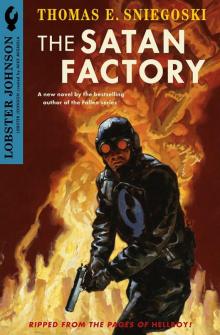 The Satan Factory
The Satan Factory In the House of the Wicked: A Remy Chandler Novel
In the House of the Wicked: A Remy Chandler Novel A Hundred Words for Hate
A Hundred Words for Hate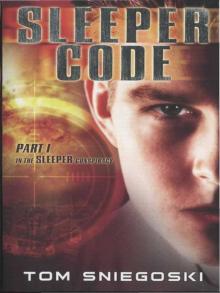 Sleeper Code
Sleeper Code The Demonists
The Demonists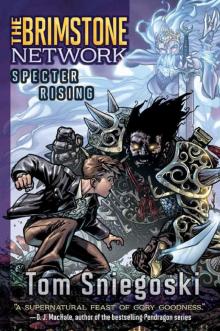 Specter Rising (Brimstone Network Trilogy)
Specter Rising (Brimstone Network Trilogy)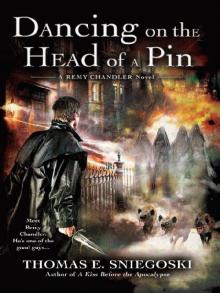 Dancing on the Head of a Pin
Dancing on the Head of a Pin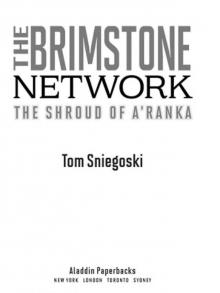 The Shroud of A'Ranka (Brimstone Network Trilogy)
The Shroud of A'Ranka (Brimstone Network Trilogy) The Flock of Fury
The Flock of Fury Where Angels Fear to Tread
Where Angels Fear to Tread Leviathan
Leviathan Walking In the Midst of Fire: A Remy Chandler Novel
Walking In the Midst of Fire: A Remy Chandler Novel Billy Hooten
Billy Hooten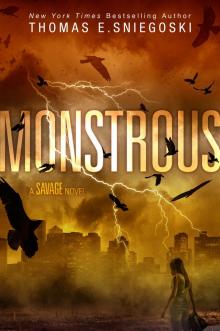 Monstrous
Monstrous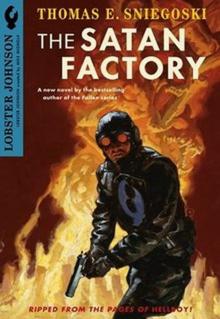 Lobster Johnson: The Satan Factory
Lobster Johnson: The Satan Factory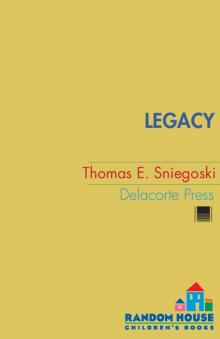 Legacy
Legacy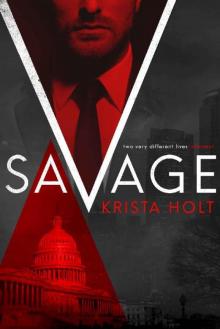 Savage
Savage Walking In the Midst of Fire rc-6
Walking In the Midst of Fire rc-6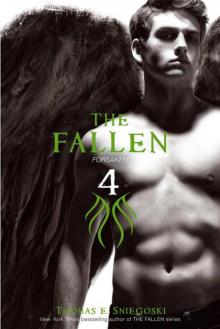 The Fallen 4
The Fallen 4 A Deafening Silence In Heaven
A Deafening Silence In Heaven A Kiss Before the Apocalypse
A Kiss Before the Apocalypse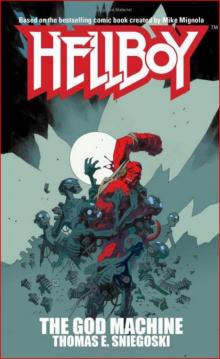 The God Machine
The God Machine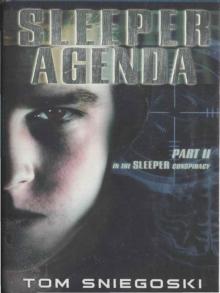 Sleeper Agenda
Sleeper Agenda The Girl with the Destructo Touch
The Girl with the Destructo Touch Dancing On the Head of a Pin rc-2
Dancing On the Head of a Pin rc-2 In the House of the Wicked rc-5
In the House of the Wicked rc-5 Reckoning f-4
Reckoning f-4 The Fallen 3
The Fallen 3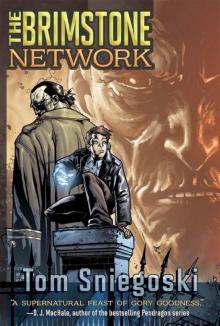 The Brimstone Network (Brimstone Network Trilogy)
The Brimstone Network (Brimstone Network Trilogy) The Fallen 2
The Fallen 2 The Fallen f-1
The Fallen f-1